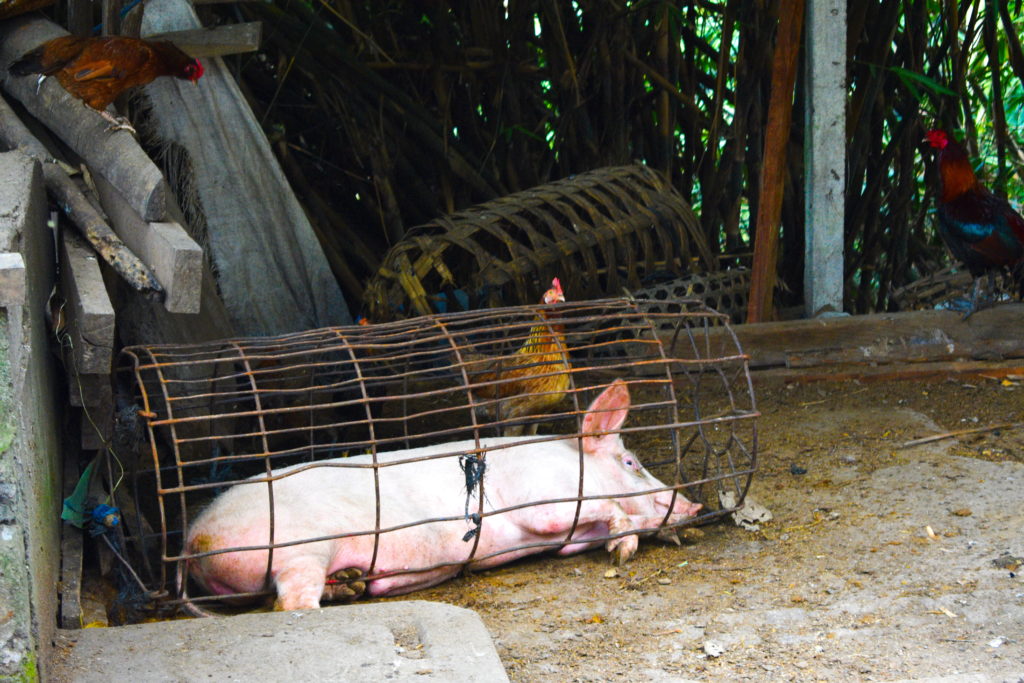
One my my biggest fears when I travel is to stumble upon some case of animal abuse.
Bali is known to be a paradise on earth and to be pretty vegan friendly, but as its human population in omnivore the cases of animal abuse in Bali are just the same as in any other country of the world.
I have noticed that many bloggers are strongly concerned about stray cats and dogs, but I honestly think that this is not the major problem...the worst cases of animal abuse in Bali (as anywhere else) are related to farmed animals.
I discovered so many examples of that in only a few hours that I need to share this with you.
One cloudy morning while I was in Candidasa, my boyfriend and I decided to have a walk and visit the village of Tenganan, famous for its handicraft. What we didn't expect was to meet so many mistreated farmed animals both inside the village and on the way.
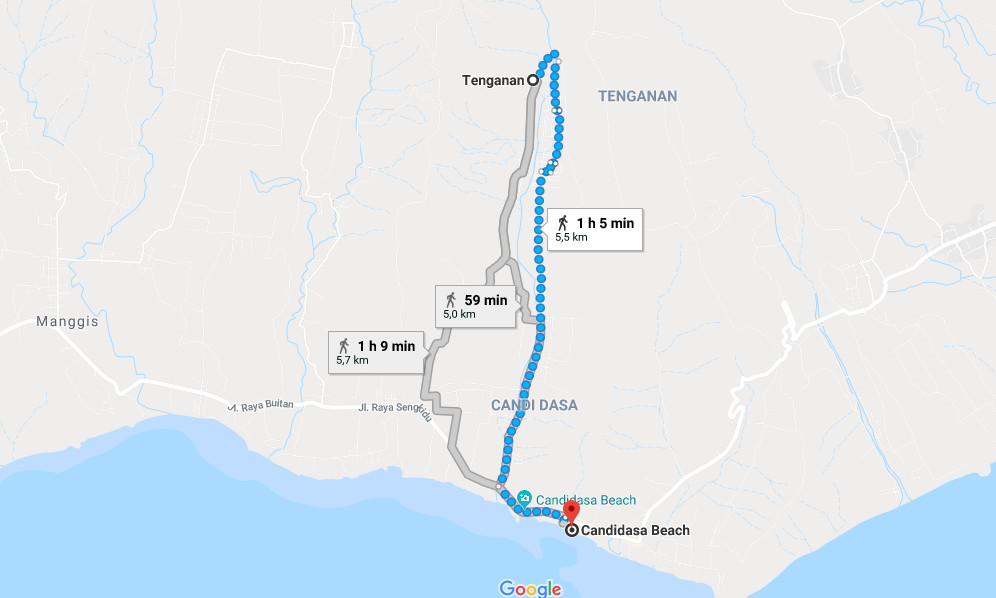
Farmed animals
Many tourist are often concerned about strays, they usually want to know if they may meet dogs or cats at their resort's...some of them are bothered, some don't want to face suffering while on holiday... ignoring what's happening to farmed animals.
Farming techniques may be more or less modern or efficient, but they all rely on the submission of sentient beings to exploit them.
During my short walk outside Candidasa I witnessed the exploitation of chickens in big farms, of goats and cows in small factories, and of pigs in the backyard of a house.
All you could think about was...how the hell can we imagine to treat another creature like that?
While in some part of the world the number of vegetarians and vegans is increasing, in developing countries the demand for meat is increasing and increasing, and these are the consequences.
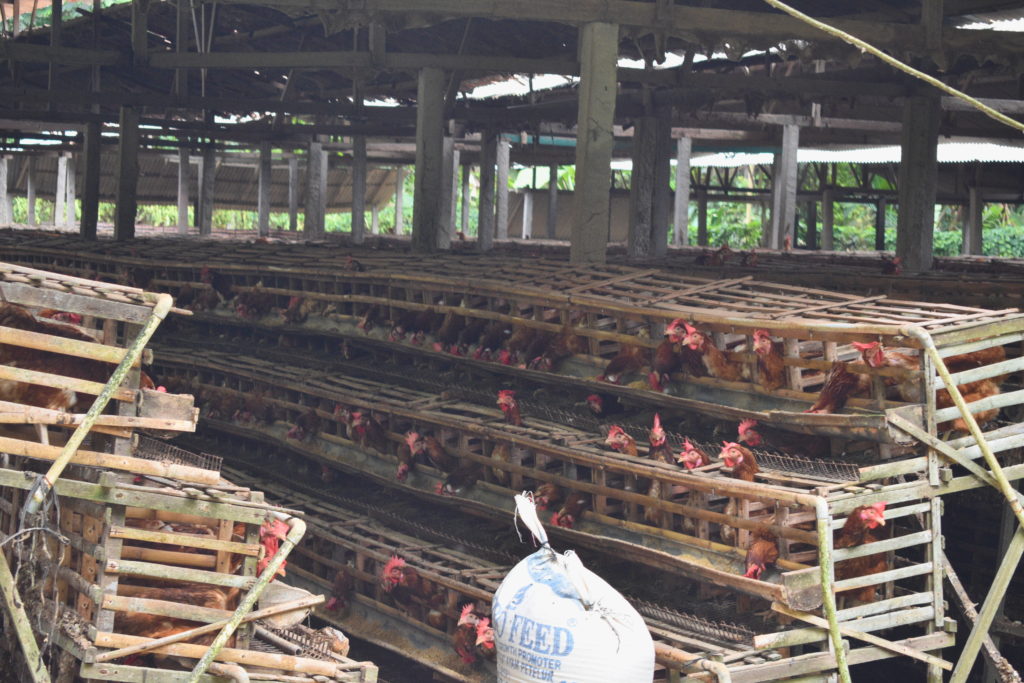
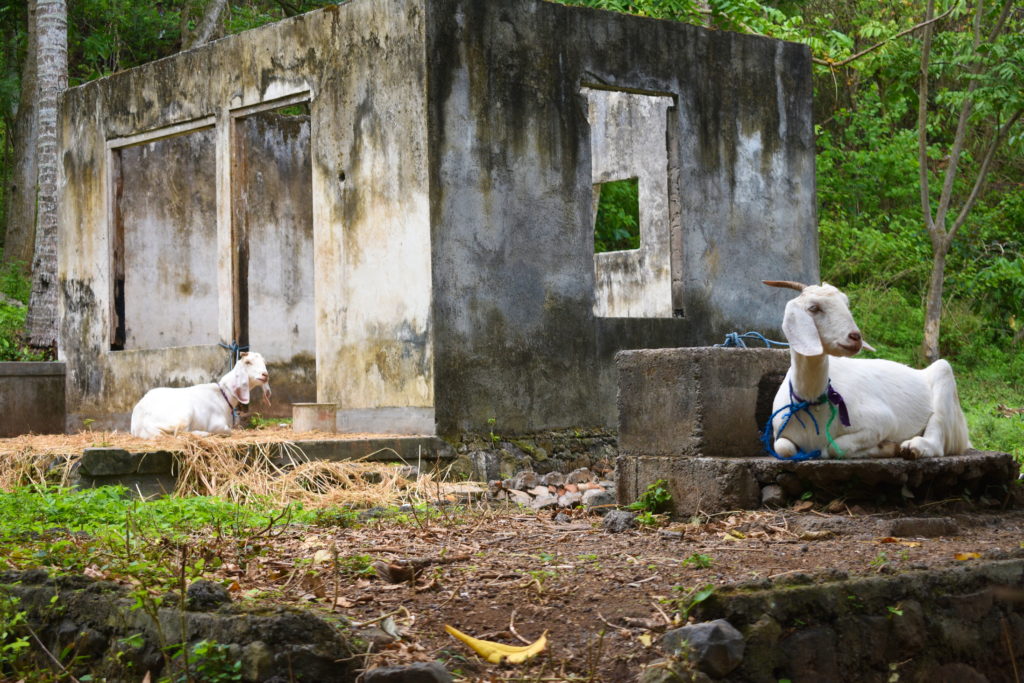
Luwak Coffee
Thanks to stupid tourists that enjoy spending money on exotic foods and drinks, Luwak Coffee is widespread around Bali (and south east Asia as I have been told).
For the ones of you who may not know of this ridiculous trend, let me just say that it’s basically coffee that’s been eaten and pooped out by a small animal called "civet", a cat-like creature native of the region.
I don't really understand how someone with a bit of sense may want to eat or drink something that has been pooped out by another animal, moreover if this involves the exploitation of that animal.
In bars around Bali and in supermarkets you can find both wild-luwak coffee (it supposed to be produced by free animals) and caged-luwak coffee (of course produced by animals caged and small caged and forced to eat coffee all the time)
You may also see civets displayed in public places and tourist attractions (most of the time you the owners will ask you money to take a picture), just another way to make money out of animals.
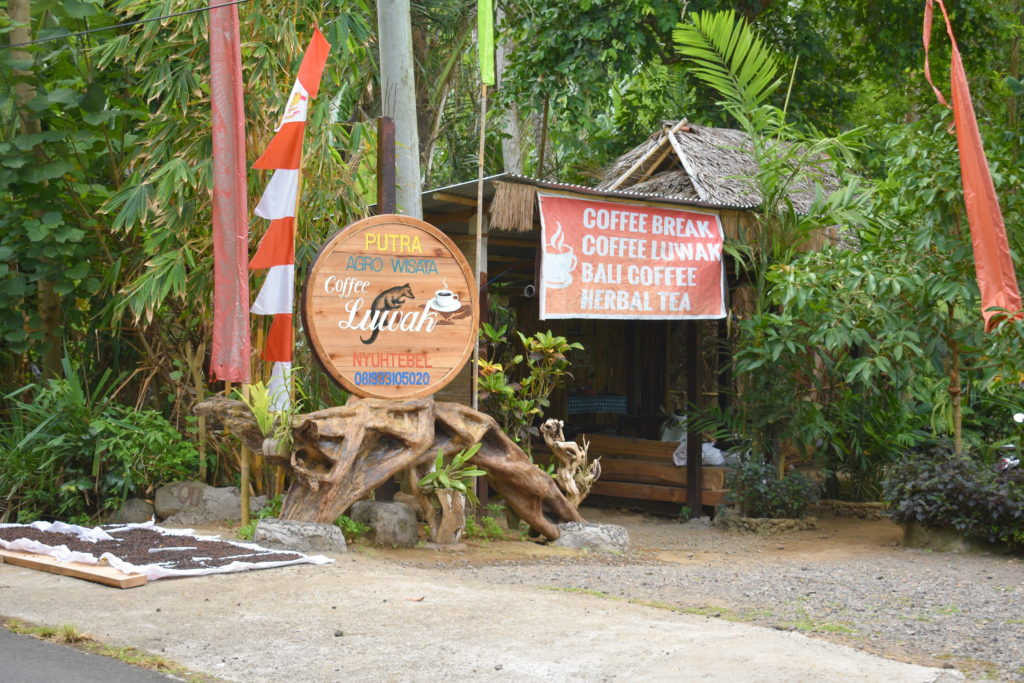
Fighting cocks
It looks like fighting cocks are a widespread tradition in Bali, so you will see many of them in wooden cages on the street, but what I didn't expect was to see them painted in pink, green and yellow...
That was what I saw inside Tenganan Village

What can we do?
There are some simple actions that we can perform to reduce animal abuse: first of all choosing a plant based diet will let you save hundreds of animals every year; secondly, avoiding circuses, animal shows, zoos and choosing ethical alternatives will help sanctuaries and reserves to help more and more animals, saving them from the ones who exploit them. Last but not least, if you see a case of animal abuse take pictures and video and submit it to the authorities; this won't mean that you will save that particular animal maybe, but you will rise consciousness on the matter.
To know more about animal abuse in Bali read this article by The Telegraph or visit the page of Bali Animal Welfare Association
